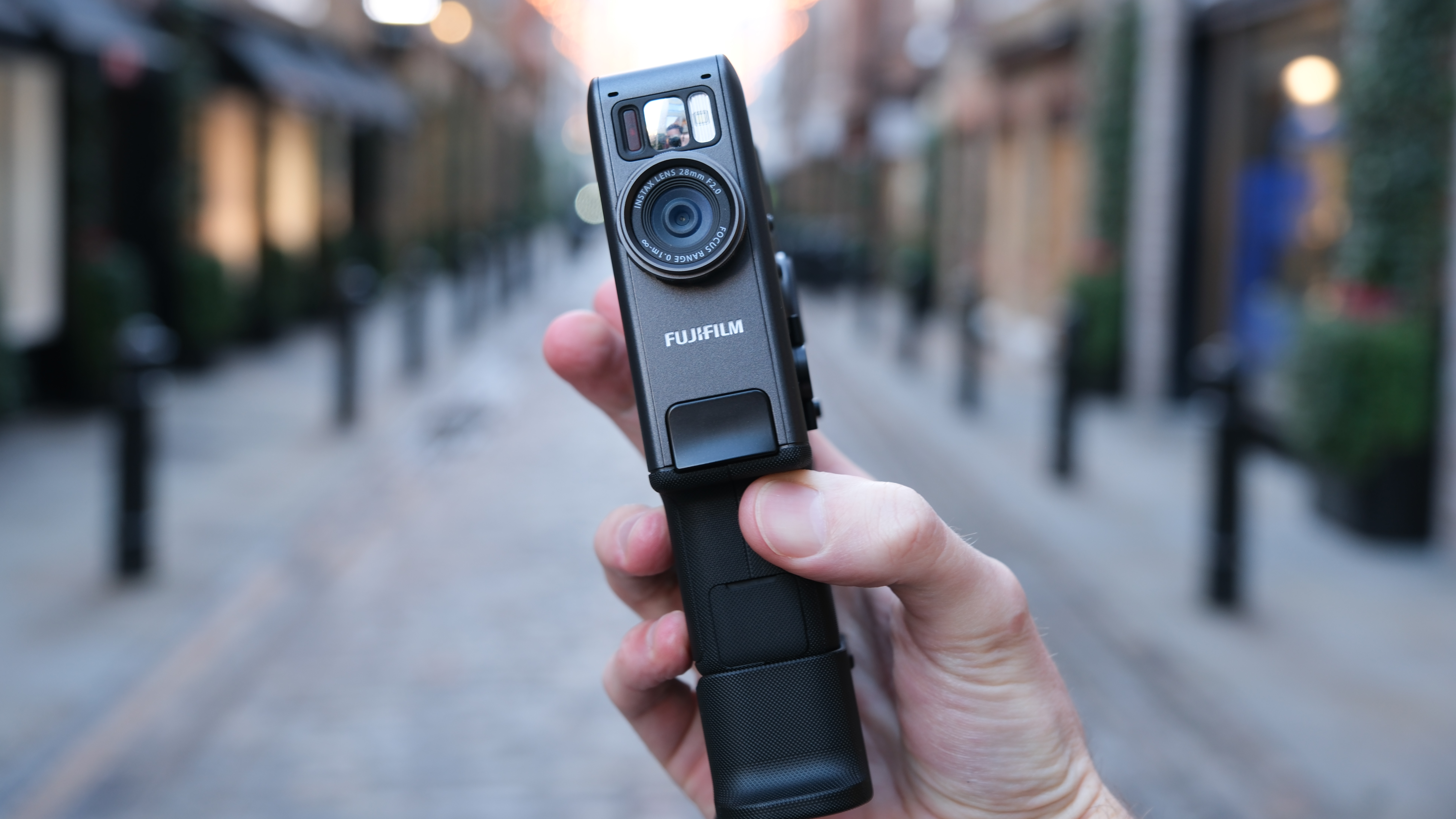"Appreciate the art of waiting," says a pro photographer
Photographer Gareth Pon shares his top 5 best practices for creating a meaningful photograph during transformative times
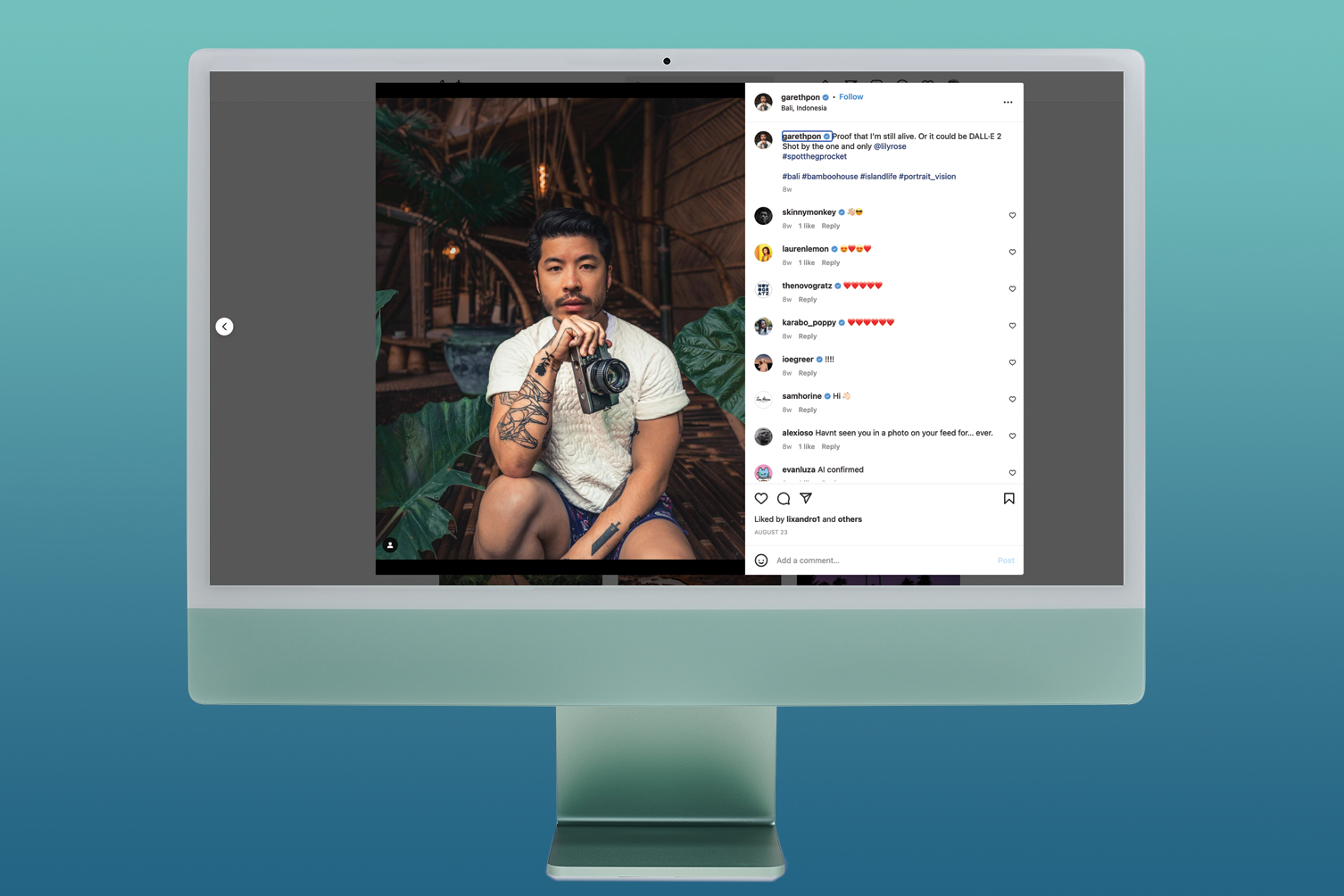
The photography industry shifts all the time, but over the last few years, we've seen drastic changes in the way that photographers work. During the COVID-19 pandemic lockdowns, photographers who would have previously worked in the studio, or on location waiting hours to capture the 'perfect' moment, found themselves at home.
Other photographers have shifted to using more photo editing software due to the increased need for 'perfection' that some social media platforms have perhaps encouraged. But what's the best practice? That depends. It depends on what sort of photographer you are, how you make a living, and where your skillset lies.
But "it depends" isn't a very good answer for an article. So we've spoken to photographer Gareth Pon, who reflects on his journey from capturing the moment to editing the moment and shares the best practices and tools for photographers.
Just like the age-old debate of whether you "take" or "make" a photograph, whether you capture a moment or edit a moment is another interesting discussion. Here's what Gareth had to say...
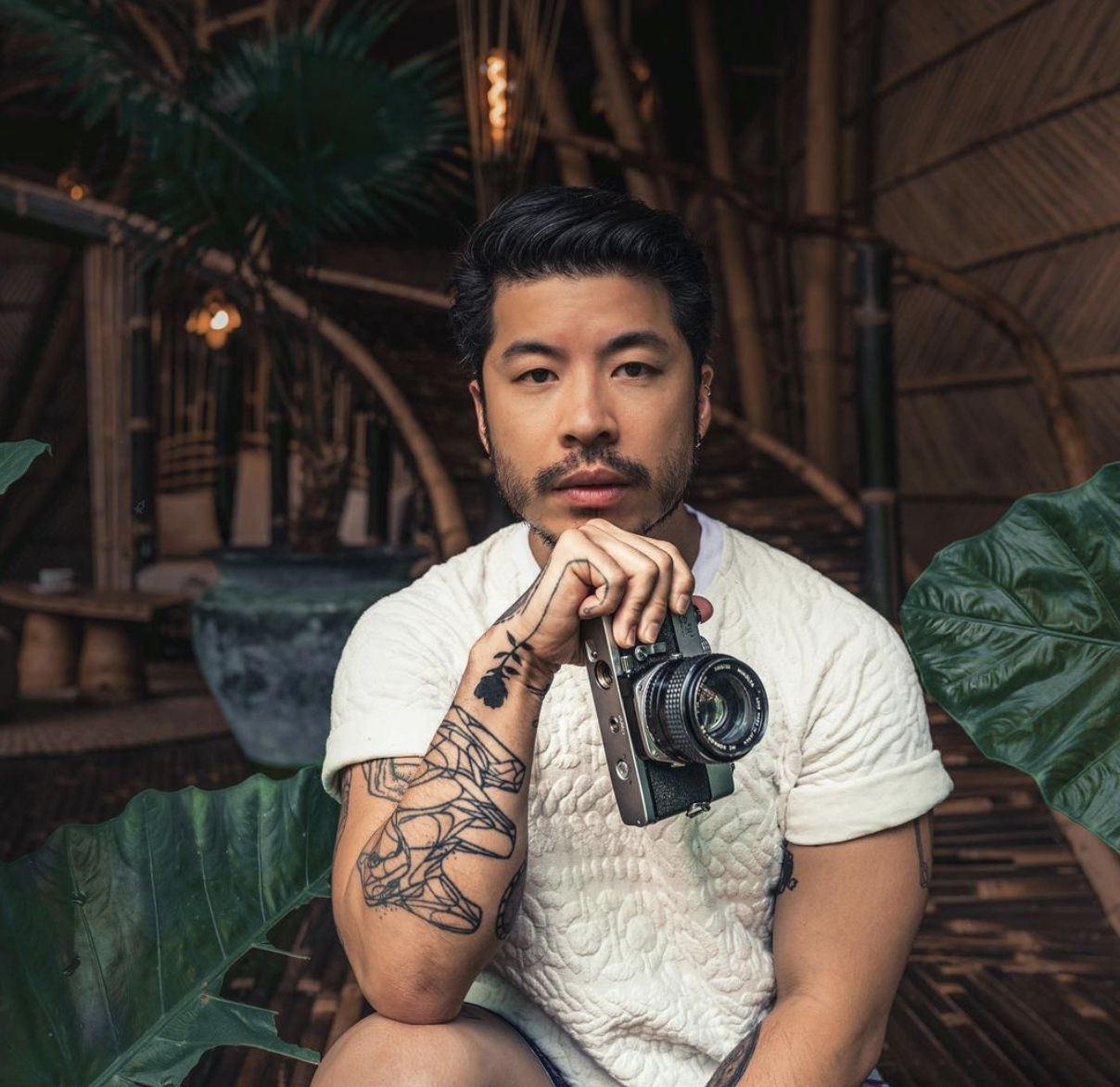
Gareth is a creative director and photographer originally from South Africa, now living in the USA. With a long-held dream of going to space, Gareth hides a rocket in all of his Instagram posts.
Hey Gareth. Why is meaningful photography so important right now?
I’ve noticed a pretty clear distinction in what type of photography captures my attention and it’s generally the images that evoke some sort of emotion or connection to the subject that was captured. I’ve always been intrigued by the story behind an image and now that it’s become a lot easier to get access to great cameras, a lot of photographs are being taken but those photographs don’t necessarily carry a story or meaning.
It’s really about noticing the significant moments around you, whether they’re big historical moments in history or just a humble memory you witness on your daily walk, there are stories to be captured and ones that carry meaning - in ways that would be completely forgotten if an image wasn’t captured.
How have you created a more meaningful approach to photography?
Over time I’ve really learned to wait before I capture a photo. In the early days of my career, I was really trigger-happy, I would go out and capture hundreds of images in the hope that one of them would be great! But as I’ve grown and perfected my craft, I’ve learned to really listen inward and appreciate the art of waiting.
Waiting gives you that breath, before the moment and it also allows you to appreciate what you’re about to capture. This sort of appreciation really builds a connection to the image you’re capturing and shifts the whole process of taking photographs to make photographs.
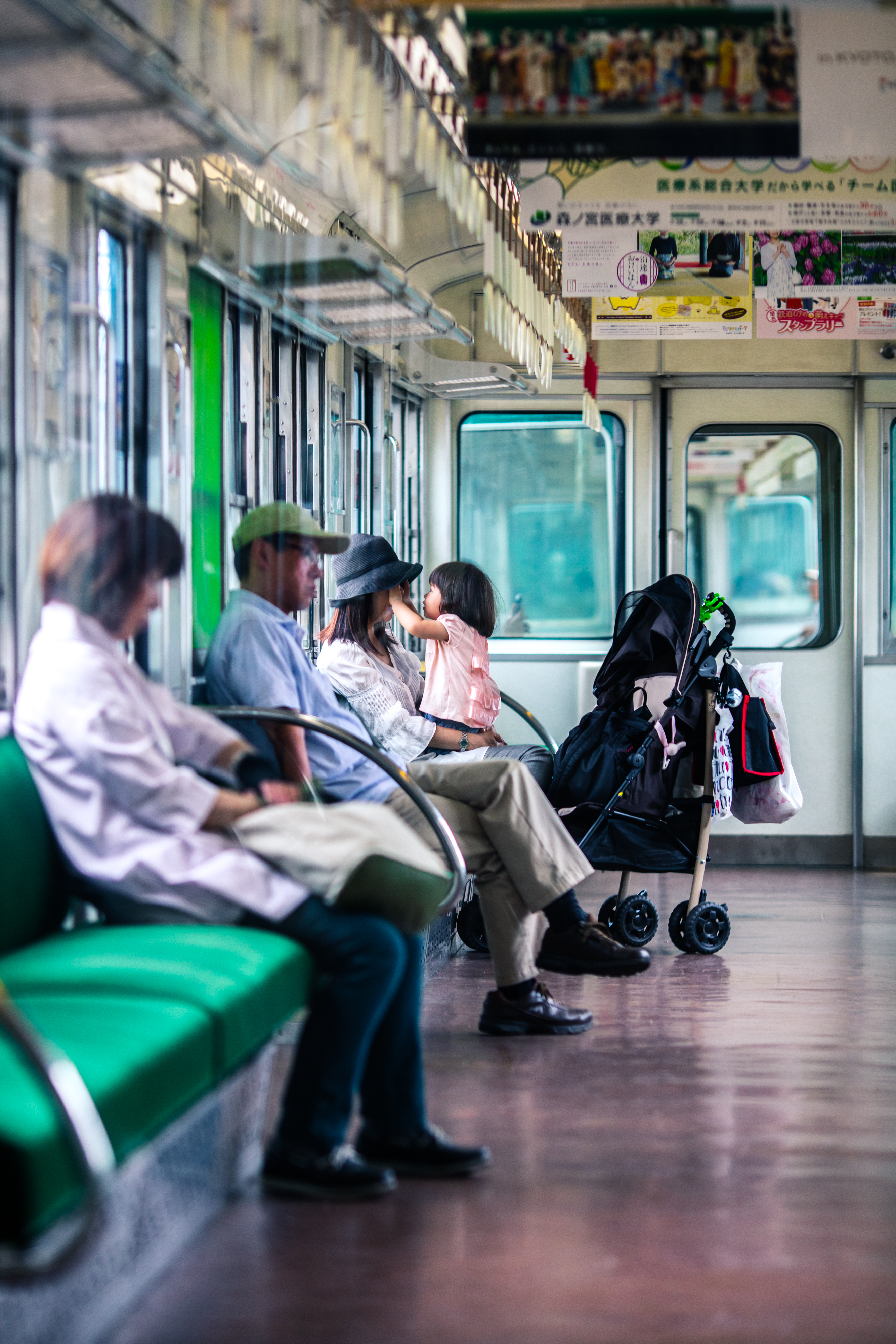
Do you think smartphones have made over-shooting worse?
Yes and no. I love the idea that everyone now has a camera in their pocket, it really is an amazing thing and it's given people around the globe the opportunity to share stories they wouldn’t have been able to before. I do think that smartphones have hurt the value of taking a photo, prior to digital there was a physical and financial cost to taking a photo – that cost adds something to how a photographer would hesitate before pressing the shutter, and sometimes that hesitation is exactly what one needs to be able to perfect the photo.
I do think we’ve reached a level of content fatigue, where there are so many photographs being captured and shared that we’ve lost the appreciation of an image. My hope is that we can be thoughtful again, and as a result, appreciate the moment before it’s captured.
A post shared by Gareth Pon 📍 Portland (@garethpon)
A photo posted by on
Capturing the moment vs. editing the moment – what's the difference?
I’ve always been someone who enjoys being outside capturing more than I enjoy being inside editing and that really influences how I shoot. If an image requires too much editing in post to make it a moment I love, then I honestly would rather not take the photo. Personally, I prefer to capture as much as I can in-camera.
Either way, it boils down to what your intention is from the get-go and being honest about that when you share your images. I think one of my favorite parts of the editing process is seeing the captured image reflected on my Sharp/NEC display, in all its fullness. But if you prefer to be more of a purist and capture everything in-camera then, great! And if you really love the process of creating an image through editing, then also great. But be honest about how your images have been made
Meaningful shooting – how do we do it?
My one favorite tip is to think before you shoot. That extra moment will always give you the awareness and appreciation you need to be able to create a beautiful photo. After all, the emotion in an image is equally as important as the technical knowledge it took to get you there.
A post shared by Gareth Pon 📍 Portland (@garethpon)
A photo posted by on
5 best practices: capturing vs editing the moment
- Think about your subject matter:
What you are shooting will always determine how you post-process your images. With some subjects, you have a little more creative freedom in post. For example, if you are doing street photography or capturing portraits, your editing should be minimal to none and at most you should just accentuate the existing light in the image.
Whereas with landscapes, you get a little more conceptual and daring with the way you post-process your images because there are a lot more colors and details to pull out of an image.
- Get the light you need:
You cannot fix an image that had bad lighting. For example, no amount of editing will turn a midday capture into something that looks like a golden hour image unless you completely change the image. You always want to consider the lighting in the capture, because the closer you are to what you envision in your mind, the easier it will be to edit the photo in post.
A post shared by Gareth Pon 📍 Portland (@garethpon)
A photo posted by on
- How do you morally feel about your process:
It’s become easier and easier with technology to take a photo and completely change it to the point where it looks absolutely perfect, with no resemblance to the original photo. Photographers are retouching their images more and more nowadays and it has actually become something that tests the morals of the photographer. I personally believe that neither is wrong, but you as a photographer should always be open and honest about how you arrived at your final image.
- Think twice, capture once:
A lot of photographers out there are pretty trigger-happy. I’ve been out with photographers who are shooting landscape images with burst mode on, they’ll literally capture the same image 20 times and then hope that something is different. Unless you’re capturing wildlife or sports, there’s literally no point. Instead, take the time to really consider what you’re shooting.
If you’re shooting digitally, pretend that you’re shooting on film - that extra level of thinking will help you craft your composition better, resulting in fewer images overall and more quality over quantity. This will save you time during your edit because you’ll know exactly what you captured and will reduce the amount of time you spend “fixing” your images in post.
- Photography will continue to evolve:
With the continual advancement in technology and wider adoption of the medium, there will always be new ways to capture and edit your images. Which is a blessing and a curse, because photographers are faced with the question of whether to be a purist or embrace the new tech to create unique images.
My recommendation would be to keep experimenting, go out of your comfort zone and build familiarity between the shutter and the export. Because the more familiar you are with that process and defining what it means to you, the more you’ll be able to really define what your style is as a photographer.
For more on editing, here's the best free photo editing software, plus Photoshop tutorials galore. These are the best cameras for Instagram.
The best camera deals, reviews, product advice, and unmissable photography news, direct to your inbox!
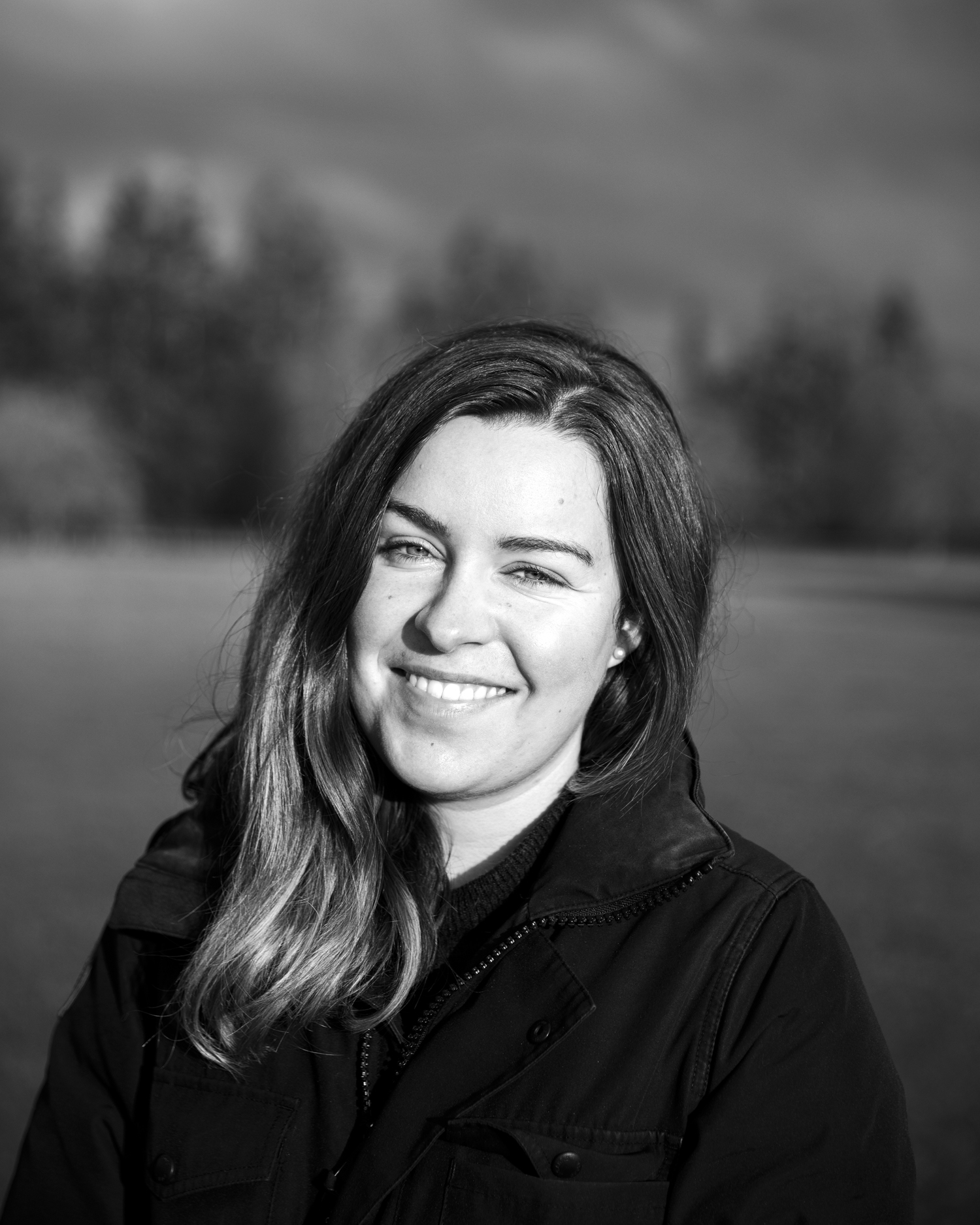
Lauren is a writer, reviewer, and photographer with ten years of experience in the camera industry. She's the former Managing Editor of Digital Camera World, and previously served as Editor of Digital Photographer magazine, Technique editor for PhotoPlus: The Canon Magazine, and Deputy Editor of our sister publication, Digital Camera Magazine. An experienced journalist and freelance photographer, Lauren also has bylines at Tech Radar, Space.com, Canon Europe, PCGamesN, T3, Stuff, and British Airways' in-flight magazine. When she's not testing gear for DCW, she's probably in the kitchen testing yet another new curry recipe or walking in the Cotswolds with her Flat-coated Retriever.
